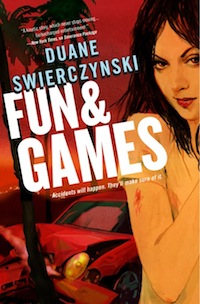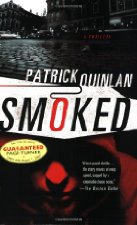 Today, January 21, I ran my Troybilt snowblower for the first time this year. Or this snow season. Those mysterious Almanac people always predict a harsh winter ahead, and this year was no different. “It’s gonna be a tough winter,” we were told. But not until today did we get enough snow to require revving up the snowblower. And already, the temperature is heading toward 40 degrees.
Today, January 21, I ran my Troybilt snowblower for the first time this year. Or this snow season. Those mysterious Almanac people always predict a harsh winter ahead, and this year was no different. “It’s gonna be a tough winter,” we were told. But not until today did we get enough snow to require revving up the snowblower. And already, the temperature is heading toward 40 degrees.
Actually, I’ve not been anxious to use the snowblower. Not because I dislike snow (though I do), but because I wasn’t sure it would work.
The last time I used the snowblower, last March of 2011, here’s what happened.
I always clear the snow from my neighbors’ driveway. They are an older couple. Doesn’t take but a few minutes. But last March, I sucked up a newspaper buried in the snow on their driveway. The paper lodged tightly in the blades, up in the auger, and the machine wouldn’t run. I left their driveway partially cleared and pushed the Troybilt back to my garage.
I tried everything I could think of to remove the newspaper. Screwdrivers, knives, heavy pliers. I removed some parts. Nothing worked. The newspaper was wedged so firmly, it was practically a solid. Like a block of wood.
I messed with it for probably an hour, frustrated. Then I had an idea.
Paper burns.
I considered the fact that gasoline remained in the engine, that I was doing this inside my low-ceilinged garage, that maybe–I didn’t really know–the contraption might just ignite and explode and burn down the whole house. But I was cold, frustrated, and well on the road to beyond caring.
Fire it would be.
I tipped the snowblower on its side, and lit a match to the jammed newspaper. The snow and general wetness didn’t cooperate. A little flame would take hold on a corner of paper, then it would go out. I went through a bunch of matches. Finally, a small flame seemed to take hold. It grew, spreading slowly in the compacted newspaper. And then….
Whoosh!
Flames shot up the plastic chute, where snow comes out. I wasn’t really expecting that. It happened fast, and it happened large. Fortunately, in my one single attempt to Plan for the Worst, I was holding a bottle of Ice Mountain water in my hand. I threw the water on the fire, and it went out, mostly.
My heart was beating pretty strong at this point. “That was stupid stupid stupid!”
I looked into the snowblower. The vexing newspaper was almost completely gone. A few blackened pieces remained, which I easily removed.
I also removed the black plastic snowchute, the bottom of which was melted way beyond redemption and barely clung to the machine. A few other plastic pieces were gone, and the inside of the snowblower auger was blackened. But hey, that doggone newspaper was gone. And fire didn’t touch the part of the snowblower which housed the gas tank and engine.
But I wouldn’t be running the snowblower any more that year. That was clear. Fortunately, I didn’t need it.
I think it was many months before I told Pam what I had done.
I ordered a replacement chute and a few other parts. I finally put the thing back together in September. I started the machine up, and it came to life. But would it throw snow? Were there other little plastic pieces inside, vital parts, which had burned away without my knowledge?
I’m glad to report, today, that the snowblower worked great. Phew!
To this day, I haven’t thought of another way to have removed that newspaper. My marginally-controlled fire did the trick. But no way would I want to do it again.
 I read Exodus 19 the other night, and found something curious.
I read Exodus 19 the other night, and found something curious.

 I knew without a doubt that I would love “Fun & Games” (June 2011). I’d already read three other books by Duane Swiercyznski, all action-packed and very twisted in a fun-funny way. “Fun & Games” fit right in with the rest, and satisfied all my expectations. As I expected.
I knew without a doubt that I would love “Fun & Games” (June 2011). I’d already read three other books by Duane Swiercyznski, all action-packed and very twisted in a fun-funny way. “Fun & Games” fit right in with the rest, and satisfied all my expectations. As I expected. I found Smoked (2006) at Half-Price Books, and I more than got my money’s worth. Three years ago, bombmaker Smoke Dugan made off with $2.4 million, and his employers want it back. He disappeared, but now has been located in Maine.
I found Smoked (2006) at Half-Price Books, and I more than got my money’s worth. Three years ago, bombmaker Smoke Dugan made off with $2.4 million, and his employers want it back. He disappeared, but now has been located in Maine.
 I’m doing the One Year Bible readings (works great on my Nook), and am just finishing Genesis.
I’m doing the One Year Bible readings (works great on my Nook), and am just finishing Genesis. Today, January 21, I ran my Troybilt snowblower for the first time this year. Or this snow season. Those mysterious Almanac people always predict a harsh winter ahead, and this year was no different. “It’s gonna be a tough winter,” we were told. But not until today did we get enough snow to require revving up the snowblower. And already, the temperature is heading toward 40 degrees.
Today, January 21, I ran my Troybilt snowblower for the first time this year. Or this snow season. Those mysterious Almanac people always predict a harsh winter ahead, and this year was no different. “It’s gonna be a tough winter,” we were told. But not until today did we get enough snow to require revving up the snowblower. And already, the temperature is heading toward 40 degrees. “Legend” rocks. Plain and simple. Couldn’t stop reading, and didn’t want it to end.
“Legend” rocks. Plain and simple. Couldn’t stop reading, and didn’t want it to end.


